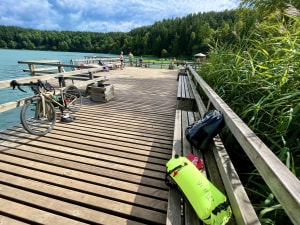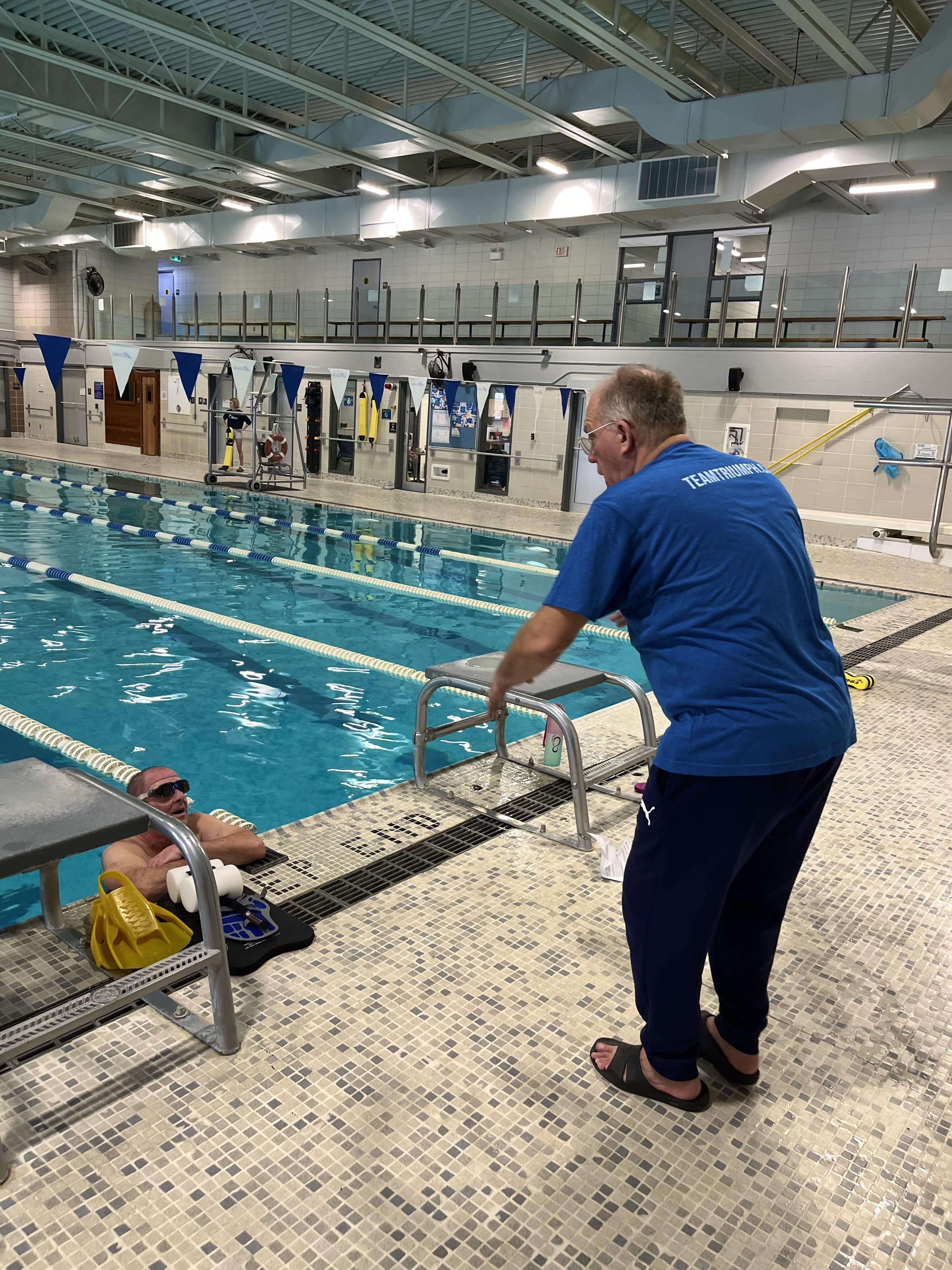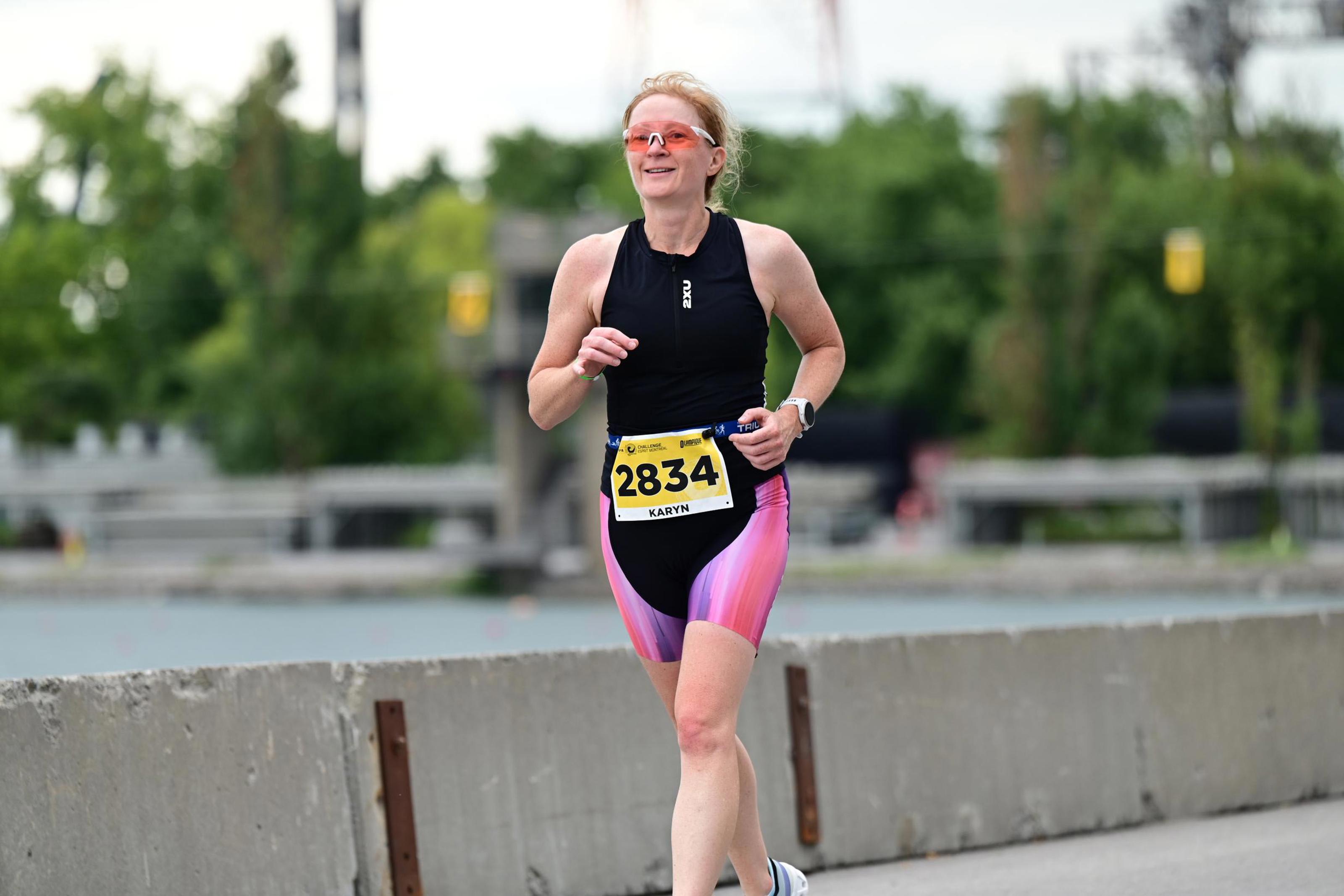
RECOVERY ON DEMAND
I recently read a quote explaining the concept of "Recovery On Demand" from a book Alan Couzens is working on. The explanation really summed up what I have been trying to communicate to the athletes I coach for years. We don’t plan recovery; we take it when we need it.” He went on to say, “all stimulus and no rest means no growth, no improvement.” Alan Couzens is a long-time coach and exercise physiologist from Colorado.
While many of our athletes are now in their taper phase before Ironman Mont Tremblant, this blog serves as a good reminder to respect the taper and respect your intuition! At Tremblant training camp I spoke about the Science & Art of the taper and for many this may not be the most exciting topic because, let’s face it, athletes don’t like to talk about rest and recovery!
You may be cutting back on your training which we can see on your Training Peaks but if you need another rest day, take it. You have the intuition to know better than what your Garmin, Training Peaks or/and other A.I. apps might be telling you. You know better than your coach if you didn’t sleep well because you got in a fight with your spouse, your child kept you up all night or you had a long and stressful day at work on your feet. Your coach doesn’t know that you chose not to rehydrate after a big workout, skip your mobility work or eat at McDonalds, therefore slowing down your recovery. Life Stress Balance (LSB) is not a metric that is trackable by anyone but you.
The same principle of recovery on demand is relevant to everyday training. You are the best guide to know if you need a rest day. Your coach will not see you as lazy or incompetent: if anything, your coach will know that you understand the principles of recovery on demand and will be overjoyed that you are taking the rest when you need it! If you see a workout on your plan that you don’t feel will serve you that day, ask your coach for a recovery workout rather than doing a bunch of hill repeats. You know best what you need in the moment.
Bottom line is: if you wake up tired, sore, or feel an injury coming on, take a rest day or two or three. You know best how you are feeling walking up and down the stairs in the morning. Your coach is not a mind reader. If you have an injury, he/she doesn’t know how bad it is or what your path for improvement is going to be. Seek advice from a professional physiotherapist immediately and share the treatment plan with your coach.
With this newfound time during the taper, it can be tempting to catch up on painting the house from top to bottom, doing the gardening or going for a long mountainous hike with a friend you haven’t seen for a while. These activities are still very much physical activity and not something you have “trained for” when you have just come off the hardest training of your life. Use this time to catch up on rest, mobility work, yoga and taking time to soak in a hot tub with your significant other.
I have been following 2-time Olympic medalist and world champion Katie Zaferes for many years. What strikes me is the amazing relationship she has with her coach. I can hear through her words that her coaching relationship is a 2-way street of communication when it comes to planning training, especially now with her increasing demands of being a new Mother. Communication with your coach is the key to your success!
What I have learned from over 25 years of coaching is that the most successful athletes understand this principle of Recovery on Demand and communicate well with their coach. Taper up, everyone, and remember: if you need a rest day, take it!
Julia Aimers is a Certified Exercise Physiologist and Certified High-Performance Specialist with the Canadian Society for Exercise Physiologists. She is a Triathlon, Cycling and Swimming Coach and Yoga Instructor. Julia founded Team Triumph Triathlon Club in 2002.

I would highly recommended Eric and Team Triumph!
Ian Ross

A year ago I could only tread water and had not run since childhood. With the amazing Virtual Olympic course, support, guidance, and tips from of all the folks at Team Triumph I've ended the season with my first Olympic distance triathlon under my belt and am hooked! Really looking forward to the 2025 season and even to the hard work over the winter to prepare. Karen Houle

I wanted to let you know that the Perth triathlon was a great experience, I somehow placed third in my age group! What a supportive group of participants (including Team Triumph athletes), cheering bystanders and volunteers.
Thanks to your swim lessons, I learned the technical basics and gained confidence to get back in the pool after decades. And it was really special doing this with Ann Laidlaw, my bestie for many years. We did a couple of additional swims with Kevin and Team Triumph people, also a great way to continue learning and practicing good technical form.
I will continue with lane swimming and who knows, maybe there's another triathlon in my future!